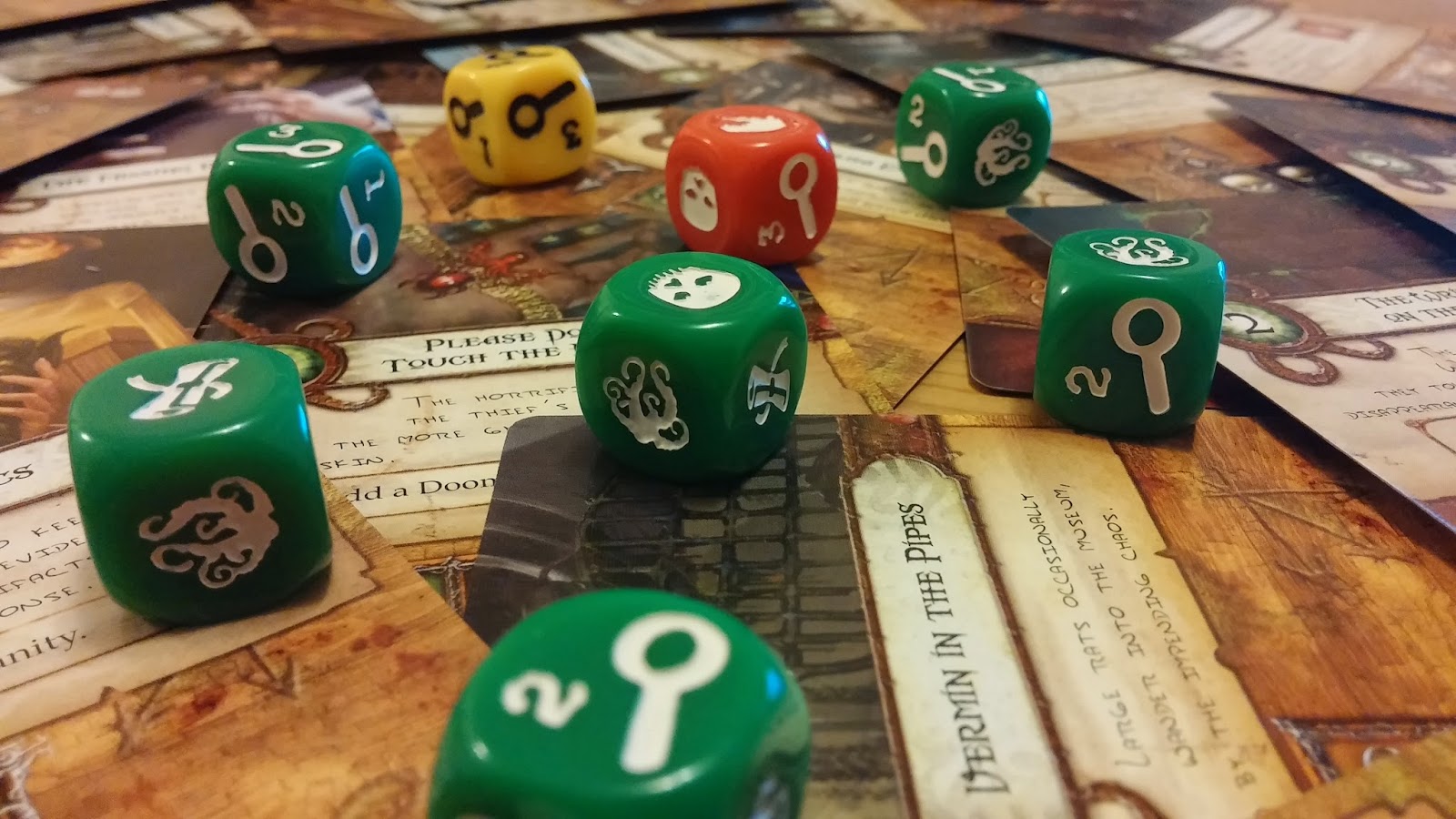January's game is...
Betrayal at House on the Hill (Avalon Hill/Wizards of the Coast). Or Betrayal. Or BAHOTH Or Betrayal at HOTH. You get the idea.
Set within the walls of a dilapidated, spooky mansion the players take on the roles of explorers uncovering the secrets hidden within the many rooms and corridors of the sprawling House on the Hill. The players work together to discover useful items, encounter supernatural events, and develop their characters. At some point one player will inadvertently begin the Haunt: One of 50 different scenarios, which pits one of the explorers - now the Traitor - against the rest in a bid to achieve their fiendish, corrupt goal. Will the heroes manage to foil the evil plans of the Traitor (and the house) in time, or will the Traitor emerge victorious in his/her evil plan?
There are 12 different characters to choose from in the game, represented by 6 miniatures. Its like having 6 characters, each with two personalities.
Each character has a unique set of base stats, which can increase and decrease as they encounter various things within the house.
The game board is made up of room tiles which are drawn randomly by players as they move through the house. This means with each play-through the house will be set out slightly differently.
 |
| The only house where the only access to the kitchen is through the garden. |
The thing that is really unique about this game compared to the other games I've played is the Haunt. Each time a player draws an Omen card they must perform a Haunt roll. If the roll is a success the game continues as it was, everyone working together to explore the house. If the roll fails then the Haunt begins, and one of 50 scenarios is chosen, based on the card drawn and the room it was drawn in, and someone is revealed to be the Traitor! This means that until this moment no one knows what the second part of the game is going to be.
Although I would love to go into detail about some of the scenarios I've played, I don't want to risk spoiling anything if you are yet to play this game and think you might like to. But I will say that a lot of horror staples are here; werewolves, zombies, mummies, aliens, psychopaths. It's all here to enjoy, and the Haunts can be quite different from each other.
 |
| And of course the worst of them all: Spiders! |
I do love to get caught up in a thematic game, and I'm a sucker for spooky (sometimes slightly naff) horror. For me Betrayal invokes the feeling of 80's horror movies. Movies like American Werewolf in London, Return of the Living Dead, Fright Night; those kinds of decent horror films that were fun and had elements of humour. I used to do a lot of horror roleplay (based heavily on Call of Cthulhu), and although playing Betrayal is very different from running a roleplay campaign, its nice to have those elements of horror storytelling and character building in a very accessible board game. There are definitely other games out there that are more immersive with stronger stories, but the replayability due to the multiple Haunts (and always different board layout), the co-op and competitive gameplay, and again, it being such an accessible game (its so easy to teach) makes this one a real winner for me. I've had some great evenings with this game; evenings of tense, thrilling, campy horror. Dig out some snacks, dim the lights, put on some spooky music, and enjoy!
And remember to read your event cards using your best Vincent Price impression.
Oh, and the dice are great! If you've read my previous post you will know that I love me some dice!

















